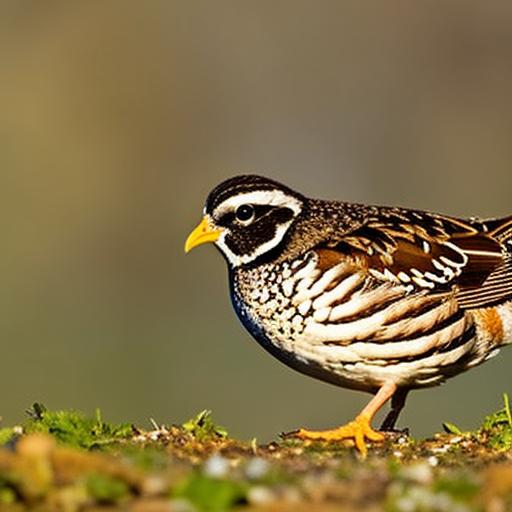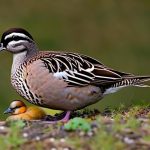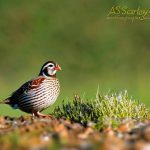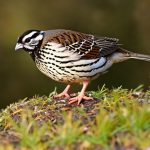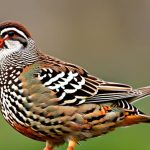Quail, like many other birds, have specific needs during the winter months. As the temperature drops and food becomes scarce, quail require a suitable habitat, proper nutrition, protection from extreme weather conditions, and adequate ventilation to survive the winter. Understanding these needs is crucial for ensuring the health and well-being of quail during this challenging time. Quail are ground-dwelling birds that rely on a variety of seeds, insects, and vegetation for their diet. During the winter, their food sources may become limited, making it essential to provide them with the right nutrition to maintain their health and energy levels. Additionally, quail need protection from harsh weather conditions such as cold temperatures, snow, and strong winds. Creating a suitable winter habitat with adequate shelter and additional heating options is crucial for their survival. Monitoring the health and behavior of quail during the winter months is also important to address any issues promptly and ensure their well-being.
Quail are small birds that are highly susceptible to cold temperatures and harsh weather conditions during the winter months. Understanding their specific needs during this time is crucial for their survival. Quail require a suitable habitat with proper nutrition, protection from extreme weather conditions, and adequate ventilation to thrive in the winter. Providing them with the right environment and care is essential for ensuring their health and well-being during this challenging time. It is important to monitor the health and behavior of quail closely during the winter months to address any issues promptly and ensure they have everything they need to survive. By understanding the needs of quail in the winter, we can create a suitable habitat, provide the right nutrition, protect them from extreme weather conditions, ensure adequate ventilation, implement additional heating options, and monitor their health and behavior to ensure their well-being during this challenging time.
Key Takeaways
- Quail need protection from extreme weather conditions in the winter
- Creating a suitable winter habitat for quail is essential for their well-being
- Providing the right nutrition is crucial for quail to survive the winter
- Adequate ventilation is important to maintain a healthy environment for quail
- Monitoring the health and behavior of quail during winter is necessary for their well-being
Creating a suitable winter habitat for quail
Creating a suitable winter habitat for quail is essential for their survival during the cold months. Quail require shelter from harsh weather conditions such as cold temperatures, snow, and strong winds. Providing them with a well-insulated enclosure or shelter with proper bedding and nesting materials can help keep them warm and protected. Additionally, it is important to ensure that the habitat has adequate ventilation to prevent moisture buildup and maintain air quality. The enclosure should also have enough space for the quail to move around comfortably and engage in natural behaviors such as dust bathing and foraging. Implementing additional heating options such as heat lamps or heated perches can help maintain a comfortable temperature within the habitat. It is also important to regularly clean and maintain the habitat to prevent the buildup of waste and ensure a healthy environment for the quail.
Creating a suitable winter habitat for quail is crucial for their survival during the cold months. Quail require shelter from harsh weather conditions such as cold temperatures, snow, and strong winds. Providing them with a well-insulated enclosure or shelter with proper bedding and nesting materials can help keep them warm and protected. Additionally, it is important to ensure that the habitat has adequate ventilation to prevent moisture buildup and maintain air quality. The enclosure should also have enough space for the quail to move around comfortably and engage in natural behaviors such as dust bathing and foraging. Implementing additional heating options such as heat lamps or heated perches can help maintain a comfortable temperature within the habitat. It is also important to regularly clean and maintain the habitat to prevent the buildup of waste and ensure a healthy environment for the quail.
Providing the right nutrition for quail in the winter
During the winter months, quail may have limited access to their natural food sources such as seeds, insects, and vegetation. Providing them with the right nutrition is crucial for maintaining their health and energy levels during this time. Supplementing their diet with high-quality quail feed that is rich in protein, vitamins, and minerals can help meet their nutritional needs. Additionally, offering treats such as mealworms, fruits, and vegetables can provide variety in their diet and help keep them engaged. It is important to ensure that fresh water is readily available at all times, as quail can become dehydrated in cold weather. Monitoring their food intake and adjusting their diet as needed can help ensure that they are getting the right nutrition to stay healthy during the winter.
During the winter months, quail may have limited access to their natural food sources such as seeds, insects, and vegetation. Providing them with the right nutrition is crucial for maintaining their health and energy levels during this time. Supplementing their diet with high-quality quail feed that is rich in protein, vitamins, and minerals can help meet their nutritional needs. Additionally, offering treats such as mealworms, fruits, and vegetables can provide variety in their diet and help keep them engaged. It is important to ensure that fresh water is readily available at all times, as quail can become dehydrated in cold weather. Monitoring their food intake and adjusting their diet as needed can help ensure that they are getting the right nutrition to stay healthy during the winter.
Protecting quail from extreme weather conditions
Quail are highly susceptible to extreme weather conditions such as cold temperatures, snow, and strong winds during the winter months. Providing them with adequate protection is crucial for their survival. Insulating their enclosure or shelter with materials such as straw or hay can help keep them warm and dry. Additionally, providing them with access to a covered area or windbreak can protect them from harsh winds and precipitation. Monitoring weather forecasts and taking precautions such as covering their enclosure with a tarp or providing additional bedding during particularly cold spells can help protect them from extreme weather conditions. It is important to regularly check on the quail to ensure that they are safe and comfortable during inclement weather.
Quail are highly susceptible to extreme weather conditions such as cold temperatures, snow, and strong winds during the winter months. Providing them with adequate protection is crucial for their survival. Insulating their enclosure or shelter with materials such as straw or hay can help keep them warm and dry. Additionally, providing them with access to a covered area or windbreak can protect them from harsh winds and precipitation. Monitoring weather forecasts and taking precautions such as covering their enclosure with a tarp or providing additional bedding during particularly cold spells can help protect them from extreme weather conditions. It is important to regularly check on the quail to ensure that they are safe and comfortable during inclement weather.
Ensuring adequate ventilation in the quail enclosure
Adequate ventilation is essential in maintaining a healthy environment for quail during the winter months. Proper ventilation helps prevent moisture buildup, which can lead to respiratory issues and other health problems for the birds. Ensuring that the enclosure has vents or windows that can be opened to allow fresh air to circulate is important for maintaining air quality. It is also important to monitor humidity levels within the enclosure and take steps to reduce moisture buildup if necessary, such as using absorbent bedding materials or installing a dehumidifier. Regularly cleaning the enclosure and removing waste can also help maintain good air quality for the quail.
Adequate ventilation is essential in maintaining a healthy environment for quail during the winter months. Proper ventilation helps prevent moisture buildup, which can lead to respiratory issues and other health problems for the birds. Ensuring that the enclosure has vents or windows that can be opened to allow fresh air to circulate is important for maintaining air quality. It is also important to monitor humidity levels within the enclosure and take steps to reduce moisture buildup if necessary, such as using absorbent bedding materials or installing a dehumidifier. Regularly cleaning the enclosure and removing waste can also help maintain good air quality for the quail.
Implementing additional heating options for quail in the winter
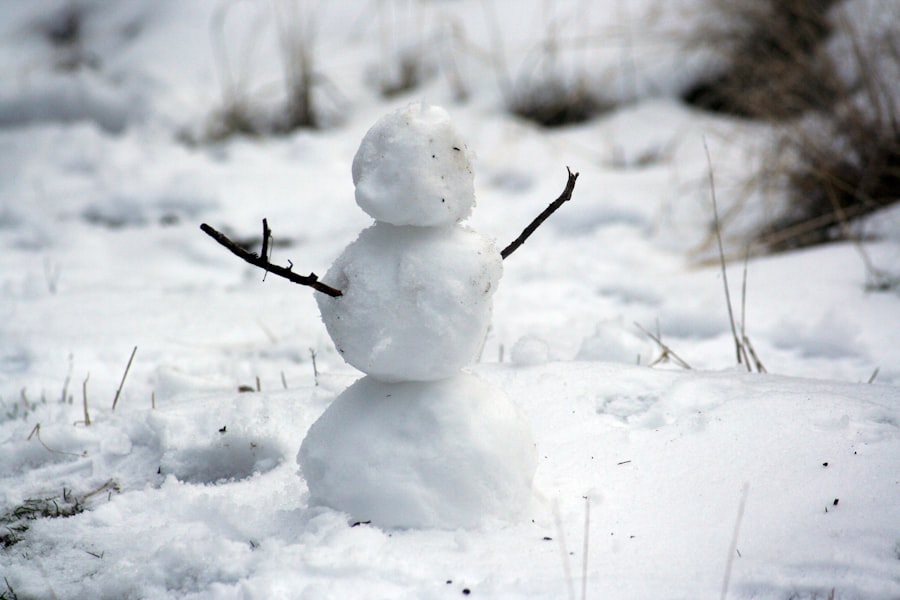
In some cases, additional heating options may be necessary to maintain a comfortable temperature for quail during the winter months. Heat lamps or heated perches can be used to provide supplemental warmth within their enclosure or shelter. It is important to position heating sources carefully to prevent any fire hazards or burns to the birds. Monitoring temperature levels within the enclosure using a thermometer can help ensure that it remains within a safe range for the quail. It is also important to provide enough space for the birds to move away from heat sources if they become too warm.
In some cases, additional heating options may be necessary to maintain a comfortable temperature for quail during the winter months. Heat lamps or heated perches can be used to provide supplemental warmth within their enclosure or shelter. It is important to position heating sources carefully to prevent any fire hazards or burns to the birds. Monitoring temperature levels within the enclosure using a thermometer can help ensure that it remains within a safe range for the quail. It is also important to provide enough space for the birds to move away from heat sources if they become too warm.
Monitoring the health and behavior of quail during the winter months
Monitoring the health and behavior of quail closely during the winter months is crucial for identifying any issues promptly and ensuring their well-being. Observing their activity levels, eating habits, and interactions with other birds can provide valuable insights into their overall health. Any changes in behavior or appearance should be noted and addressed promptly by a veterinarian if necessary. Regular health checks, including examining their feathers, eyes, beak, and feet, can help identify any signs of illness or injury early on. Providing regular opportunities for exercise and mental stimulation can also help keep quail healthy and happy during the winter.
Monitoring the health and behavior of quail closely during the winter months is crucial for identifying any issues promptly and ensuring their well-being. Observing their activity levels, eating habits, and interactions with other birds can provide valuable insights into their overall health. Any changes in behavior or appearance should be noted and addressed promptly by a veterinarian if necessary. Regular health checks, including examining their feathers, eyes, beak, and feet, can help identify any signs of illness or injury early on. Providing regular opportunities for exercise and mental stimulation can also help keep quail healthy and happy during the winter.
In conclusion, understanding the needs of quail in the winter is crucial for creating a suitable habitat, providing the right nutrition, protecting them from extreme weather conditions, ensuring adequate ventilation, implementing additional heating options, and monitoring their health and behavior during this challenging time. By addressing these needs effectively, we can ensure that quail remain healthy and well-cared for throughout the winter months.
If you’re looking for tips on keeping quail in the winter, you’ll want to check out our related article on large chicken coop ideas. This article offers valuable insights into creating a comfortable and secure environment for your quail during the colder months. With practical advice and innovative solutions, you’ll be well-equipped to ensure the well-being of your quail throughout the winter season.
FAQs
What are some important considerations for keeping quail in the winter?
Quail need to be kept in a warm and dry environment during the winter months to ensure their health and well-being. It’s important to provide them with adequate shelter, protection from drafts, and access to fresh water.
How can I keep my quail warm in the winter?
You can keep your quail warm in the winter by providing them with a well-insulated coop or shelter. Adding extra bedding, such as straw or wood shavings, can also help to keep them warm. Additionally, using heat lamps or heated waterers can provide additional warmth.
What should I feed my quail during the winter?
During the winter, it’s important to provide your quail with a balanced diet that includes high-quality feed and access to fresh water. You may also need to supplement their diet with additional protein to help them stay healthy and maintain their body temperature.
How can I protect my quail from the cold and drafts?
To protect your quail from the cold and drafts, make sure their coop or shelter is well-insulated and free from any drafts. You can also use tarps or plastic sheeting to cover any openings and provide additional protection from the elements.
Are there any special health considerations for quail in the winter?
During the winter, quail are more susceptible to respiratory issues and frostbite. It’s important to monitor their health closely and provide them with any necessary medical care. Additionally, keeping their environment clean and dry can help prevent health issues.
Meet Walter, the feathered-friend fanatic of Florida! Nestled in the sunshine state, Walter struts through life with his feathered companions, clucking his way to happiness. With a coop that’s fancier than a five-star hotel, he’s the Don Juan of the chicken world. When he’s not teaching his hens to do the cha-cha, you’ll find him in a heated debate with his prized rooster, Sir Clucks-a-Lot. Walter’s poultry passion is no yolk; he’s the sunny-side-up guy you never knew you needed in your flock of friends!

